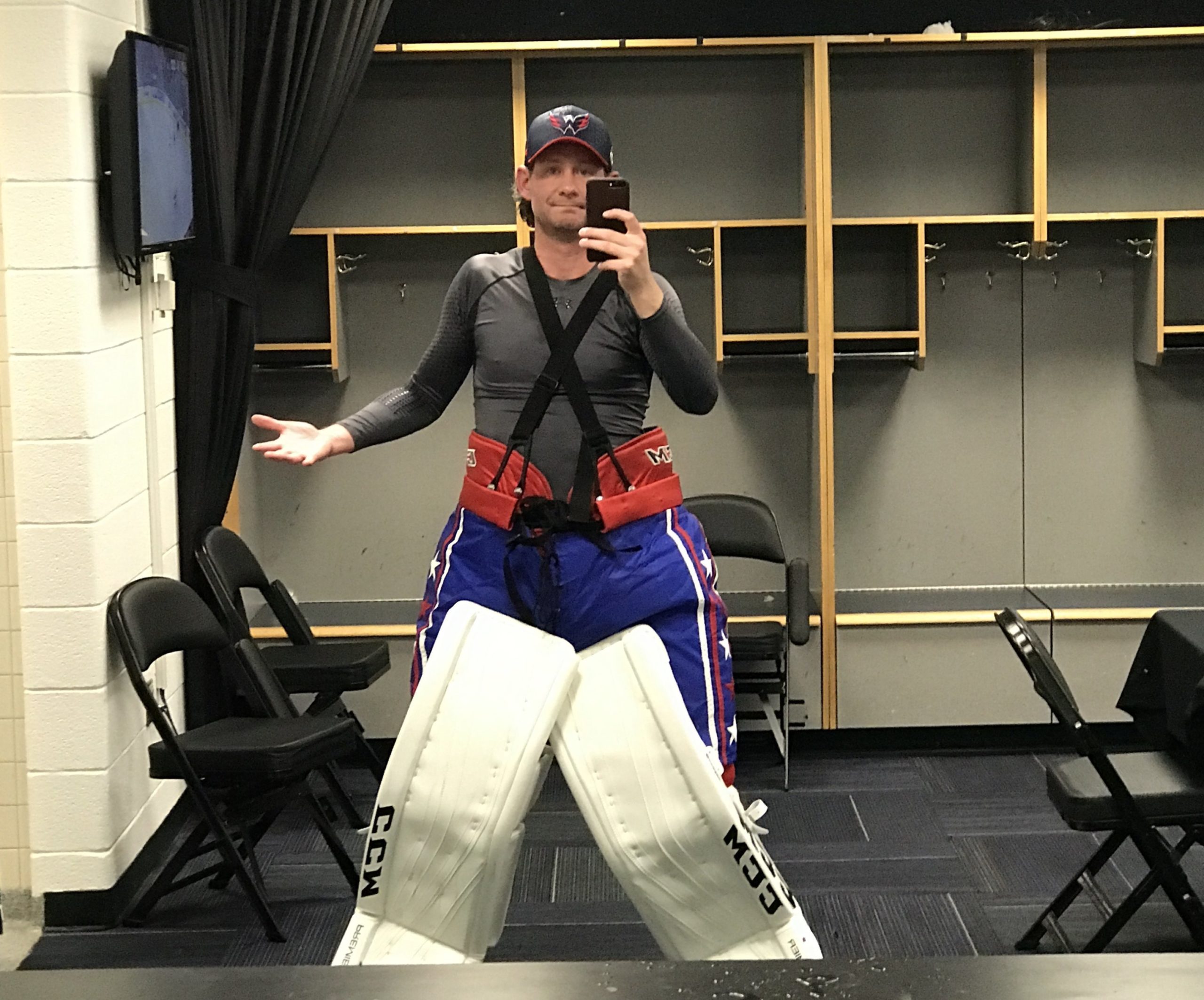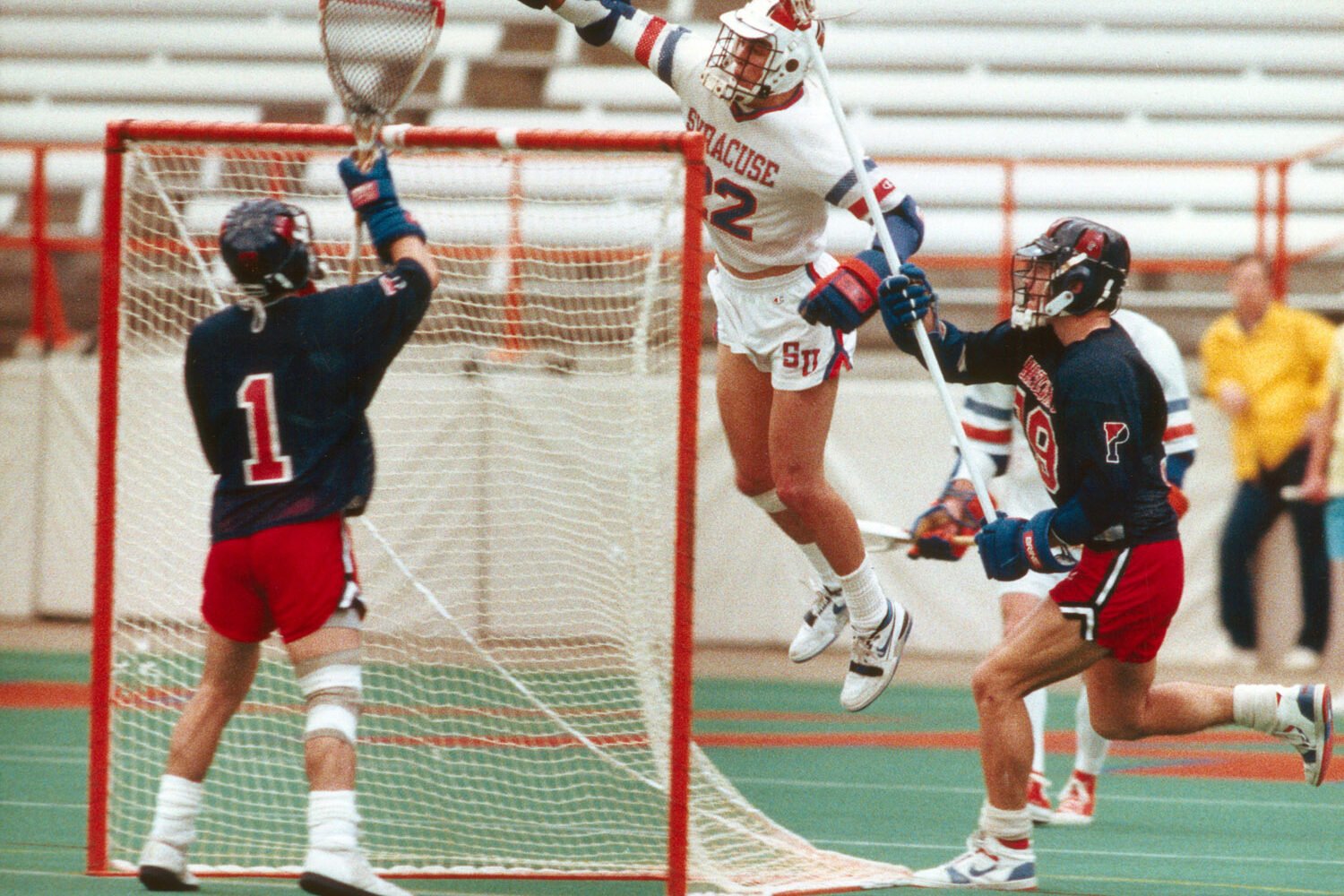When Trevor Hanger, one of the Washington Capitals’ four emergency goalies, saw a backup goalie step in and help the Carolina Hurricanes score a victory over the weekend, he was especially struck. “Watching that experience is cool for any sports fan,” he says. “But you can’t help but wonder if it’s gonna happen to you, because there’s at least a small chance that it could.”
Such a triumph could, at least, happen for Hanger, who like the Hurricanes’ new viral star David Ayres, is part of a network of emergency backup goaltenders, or EBUGs, appointed to teams across the NHL. EBUGs can play either for their home team or for its competitors, depending on the circumstances. The Caps contacted Hanger, who played hockey growing up and throughout college, before the 2017-18 season and asked if he’d be interested. EBUGs are typically unpaid. Hanger, a strategic adviser for a government-affairs firm, was nominated by a former Yale classmate who works with the Caps.
The 42-year-old was excited by the opportunity, even though he says in the three seasons since he and the other goalies signed on, only two of them have actually played during games. The four netminders typically split responsibilities, taking turns throughout the season. When he’s on call, Hanger, who lives in Capitol Hill with his wife and two kids, says he shows up in time for warm-ups, when there’s a chance a player might get hurt. Once the game starts, he takes a seat in the stands. As an EBUG, he gets two tickets to the games he’s assigned and keeps his gear in his car in a garage beneath the arena. “I don’t think there’s a ton of anxiety for me on a given day,” he says, “just because I think the odds of something happening are so low.” He had one close call, though.
Halfway through a game against the Columbus Blue Jackets in January of last year, Braden Holtby got hurt. Pheonix Copley filled in, but Hanger raced downstairs, got his equipment, and was asked to get half-dressed in the locker room, where he waited to hear whether he’d be needed. “It was a little bit of a fire drill,” says Hanger, “because we talked about what happens in this circumstance, but until you’ve actually done it, you never know how it’s going to pan out.”

The team decided against putting Hanger on the bench, and he waited in the locker room for an hour until the game was over. “Obviously, you would never root for a professional athlete to get hurt,” says Hanger. “That’s insane. But you also know that you’re watching a guy and if something happens to him, if he tweaks a hamstring or if he gets clocked in the head and is seeing stars, you’re there. So that’s a strange experience.”
EBUGs renew their commitments at the start of each season. Hanger isn’t sure if it’ll be a long-term side gig, but he says the Caps have been great. There are some nice perks beyond the tickets: A couple of DC backup players have been able to practice with the Caps, and some EBUGs for other teams have gotten to keep their jerseys after they’ve dressed for games.
He’s also become friends with his fellow EBUGs. They use a group text chain they use to let each other know when one of them runs down to the locker room, and Hanger says they’ve developed a camaraderie through the process. “We’ve joked about how we should’ve gotten Stanley Cup rings when they won the Stanley Cup two years ago,” says Hanger, though he emphasizes that they don’t expect anything. “I think for each of us there’s just an organic thrill in being a part of it.”

















